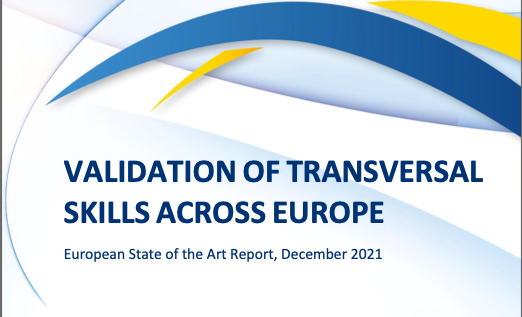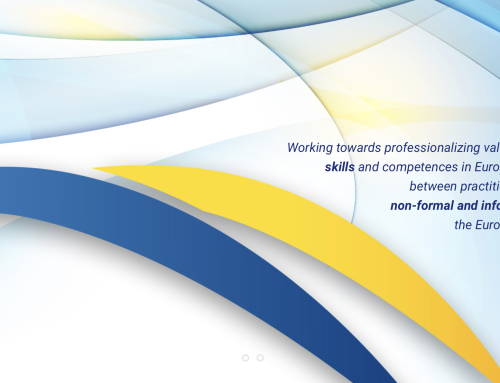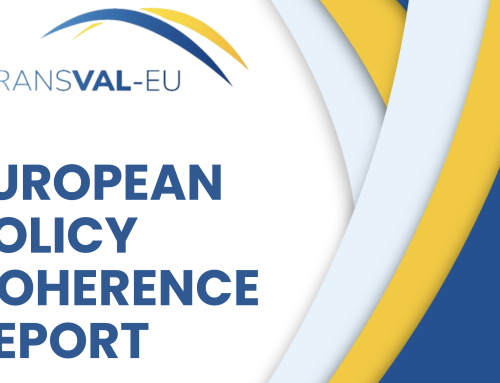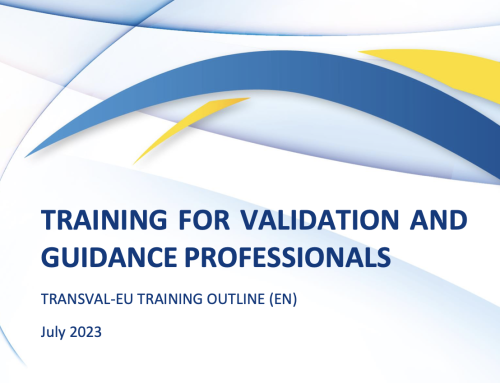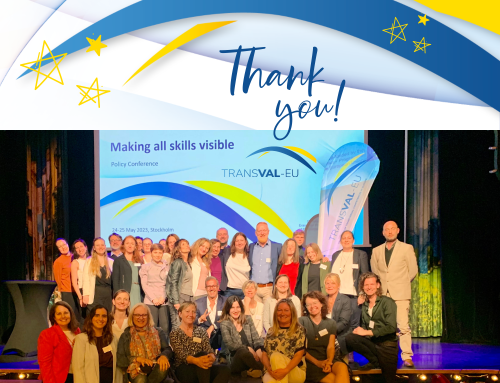What does the European State of the Art Report reveal about validation of transversal competences?
Both at work and daily life, there is a growing need for individuals to develop high-level competences to address complex challenges. Problem-solving, communication, the ability to work with others as well as autonomously, and learning are among the most important transversal competences according to employers and policy makers. Employers look for evidence that applicants are ‘job ready’ (i.e., will not require extensive training), and that they are able to demonstrate job-specific skills as well as generic soft skills, also known as transversal skills and competences. Beyond work, transversal skills and competences are important in personal relationships and in civil society.
Although increased importance is placed on transversal competences, they typically are only an implicit part of the guidance and validation process. The TRANSVAL-EU project aims to support practitioners in the area of guidance and validation of non-formal and informal learning (VNFIL) to explicitly assess and make learners’ transversal skills and competences visible. The ultimate aim is to ensure that transversal skills and competences are appropriately valued.
As defined by the European Classification of Skills, Competences, Qualifications and Occupations (ESCO) “Transversal skills and competences (TSCs) are learned and proven abilities which are commonly seen as necessary or valuable for effective action in virtually any kind of work, learning or life activity. They are ‘transversal’ because they are not exclusively related to any particular context (job, occupation, academic discipline, civic or community engagement, occupational sector, group of occupational sectors, etc.).”
Report highlights
The TRANSVAL-EU state-of-the-art report brings together information on international and national policies and practices that support guidance and validation of transversal skills and competences. It reviews EU-level frameworks, and national policies and practices in guidance and validation of non-formal and informal learning (VNFIL) in the five countries where TRANSVAL-EU field trials will take place (Austria, Belgium (FR), Italy, Lithuania, and Poland). The findings of TRANSVAL-EU’s European stakeholder survey of VNFIL professionals (179 responses) also yielded important information complementing the desk research.
Some key report highlights are:
- At the EU level, key policy documents and tools establish the importance of holistic, learner-centred approaches to the definition of competences. For example, The Council Resolution on key competences for lifelong learning emphasizes the importance of transversal skills and competences such as critical thinking, creativity, initiative, problem solving, risk assessment, decision-taking and constructive management of emotions. Targeted competence frameworks address work skills (e.g. the EntreComp framework on entrepreneurship, the DigComp framework on digital skills, the Reference Framework of Competences for Democratic Culture on citizenship, and the LifeComp framework on personal, social and learning to learn competences). Frameworks and tools used to support validation processes at both international and country levels need to be updated to be more clearly aligned with this more holistic approach to competences. The Recommendation on the European Qualifications Framework for lifelong learning explicitly calls for regular review and update of frameworks.
- 68% of the 179 respondents to the The European Stakeholder Survey that we conducted answered that they themselves support the development of transversal skills or competences during guidance of learners, 68% also indicated that in their country insufficient attention is paid to the importance of transversal skills and competences during guidance and validation processes. 57% of the survey respondents indicated that transversal skills and competences are important for both working life and for personal development. The need to take a more holistic approach to transversal skills and competences is thus accepted by a majority.
- Some countries have highlighted the importance of defining the transversal competences that guidance and validation practitioners need to support their clients effectively, such as empathy, the ability to motivate, communication skills, ability to work in teams, and commitment. Technical and transversal skills and competences are equally important. The Netherlands, for example, requires practitioners to demonstrate competences in assessment, interviewing, observation, feedback, and written communication and that they are up to date on developments in the sector in which they are working. More typically, however the desk research conducted for this study has revealed a persistent gap in terms of clear competence requirements or in the provision of professional development and training opportunities for guidance and validation practitioners in most countries.
- In spite of the absence of clear policies promoting guidance and validation of transversal skills and competences at national levels,TRANSVAL-EU partners and stakeholders identified a number of good practices which can be shared more widely. They may also inspire further innovations which may be adapted to the context and needs of different stakeholders. The good practices include new approaches to professional learning and development, to learner assessment, and to quality assurance.
The full state-of-the art report is available on the project website in Downloads. Readers may find further information on European and national policies supporting guidance and validation of transversal skills and competences, profiles of guidance and validation professionals, and good practice examples.
